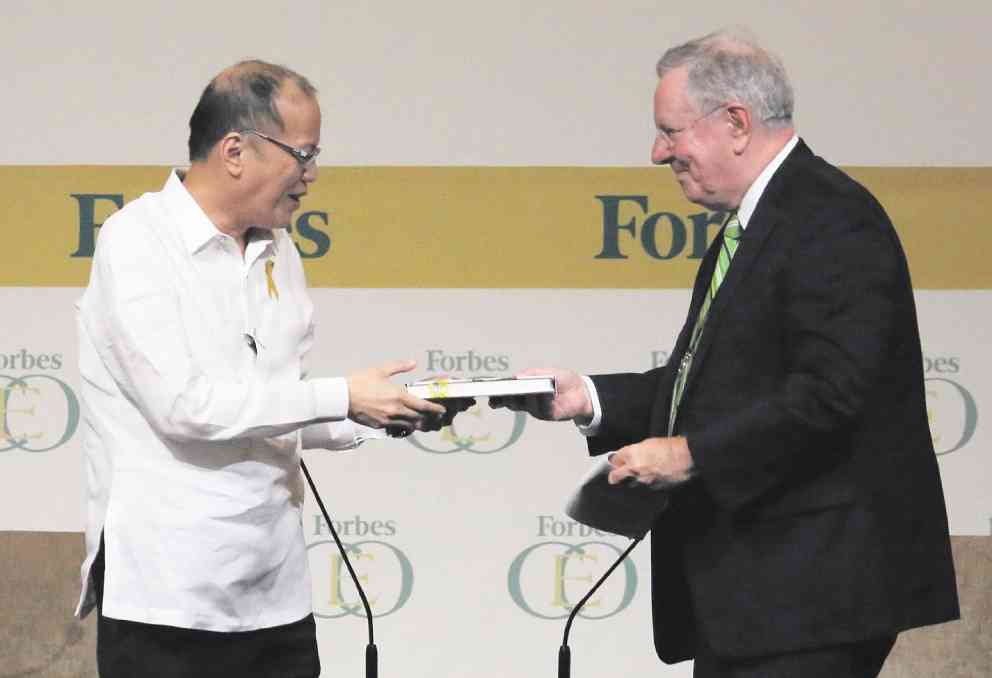Forbes: US again flexing muscle as a superpower

GOOD READ Steve Forbes, chair and editor in chief of Forbes Media, presents President Aquino with a copy of a book he has written after the Forbes Global CEO Conference on Wednesday. RAFFY LERMA
THE UNITED States is again reasserting itself as a global superpower in Asia, according to American publishing magnate Steve Forbes.
Forbes, a two-time candidate for the Republican Party’s presidential nomination, said in an interview with the Inquirer that the geopolitical tensions in the region had risen in recent years because of the vacuum created by the “very passive” stance of the United States.
But this is a “temporary detour of the world,” he said.
Joint patrols
“I think this will be seen as an aberration. The US has a presence today that is isolationist. It doesn’t like to be involved with the rest of the world. That will change at the end of 2016,” the chair and editor in chief of Forbes magazine said on Wednesday on the sidelines of the Forbes CEO forum held for the first time in Manila.
Forbes sees the United States fulfilling its commitment to send its warships to help countries, like the Philippines, patrol their seas—including territory disputed by China—very soon.
“I think that in 2017 or if not even before that, you will see joint patrols by the US and the Philippine navies in disputed borders and after a year, you will see the US Navy going inside the [22-kilometer] barrier of those artificial islands,” he said.
The Philippine government has welcomed the US plan to send its naval vessels close to the disputed reefs.
Brunei, Malaysia, Taiwan and Malaysia also lay claims to parts of the South China Sea.
The Philippines has taken its territorial dispute with China to a United Nations arbitral court in The Hague. China has refused to participate in the proceedings and said it will not recognize any ruling from the arbitral court.
Forbes favors a more active US stance in the region. “You want stability. You don’t want hegemony,” he said.
Forbes also sees the United States helping the Association of Southeast Asian Nations deal with geopolitical tensions as the bloc begins to carry out plans to form a unified economic community this year.
Pressure on North Korea
Aside from providing a counterbalance to China, Forbes also sees the United States taking a stronger stance against North Korea.
“North Korea always threatens war when it wants payoff, since they don’t have a functional economy,” he said.
Part of the likely US move, Forbes said, would be to curb North Korea’s access to the international banking system.
The restrictions that were in place years ago would now be reapplied, putting on pressure on North Korea, he said.